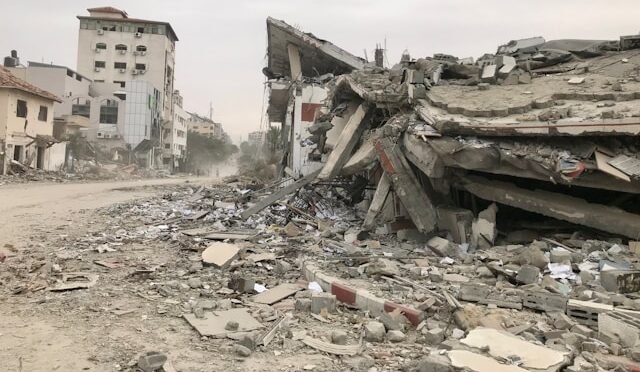New ceasefire hope rises: Qatari-Egyptian truce plan unveiled as Gaza toll grows and Hamas talks resume in Cairo
A potential turning point in the Israel-Gaza conflict emerged Tuesday, as Qatari and Egyptian mediators advanced a new ceasefire proposal amid unrelenting bloodshed. A senior Palestinian official, closely linked to the negotiations, revealed the proposed truce to the BBC. It offers a bold outline: a five to seven-year cessation of hostilities, the exchange of all hostages for prisoners, and a full Israeli withdrawal from Gaza — an end, potentially, to a devastating war that has killed over 51,000 Palestinians.
Yet even as diplomacy flickered, destruction deepened. Within 24 hours, Israeli airstrikes killed at least 26 Palestinians and injured 60 more, according to Gaza’s Hamas-run health ministry. The strikes, described by residents as “extremely intense,” targeted not just military assets but bulldozers and municipal equipment — vital tools used to clear rubble and rescue survivors.
Eyewitnesses recounted scenes of chaos, with entire roads obliterated and essential machinery reduced to twisted metal. The Israel Defence Forces confirmed targeting “around 40 engineering vehicles,” claiming they had served Hamas during its 7 October attack and had since been used to hide explosives, create underground passages, and recover buried weapons.
Tanks were also seen rolling through southern Rafah, suggesting Israel’s ground operations remain full throttle, even as backroom diplomacy plays out.
In Cairo, the atmosphere brimmed with urgency. Senior Hamas officials, including political council chief Mohammed Darwish and chief negotiator Khalil al-Hayya, arrived to consider the new terms. The latest Israeli offer, which Hamas swiftly rejected, demanded the group’s disarmament in return for a six-week pause — a non-starter, sources said.
Israeli Prime Minister Benjamin Netanyahu continues to take a hard line, declaring that no ceasefire will be accepted until Hamas is dismantled and all Israeli hostages return. In contrast, Hamas demands a firm Israeli commitment to end the war before releasing captives.
Still, Tuesday’s developments hint at shifting ground. The unnamed Palestinian official told the BBC that Hamas may now accept a new governance arrangement for Gaza — one not under its sole control. The official said the group would hand over authority to “any Palestinian entity agreed upon at the national and regional level.” That could mean the West Bank-based Palestinian Authority or an entirely new body.
Embed from Getty ImagesNetanyahu, however, has already rejected any role for the PA in Gaza’s future — a longstanding political stalemate that remains unresolved.
While scepticism lingers, the Palestinian official described the current mediation effort as “serious,” noting Hamas has shown “unprecedented flexibility.” Whether Israel reciprocates remains uncertain.
Since the conflict reignited following the collapse of a brief ceasefire last month, both sides have blamed each other for the breakdown. But the humanitarian toll continues to mount. More than 51,240 Palestinians — the vast majority civilians — have died since Israel launched its military offensive after the Hamas-led attack on 7 October 2023, which killed 1,200 people in Israel and saw 251 taken hostage.
Meanwhile, the Palestinian Embassy in Cairo has relocated its operations to the city of Arish near the Gaza border. Embassy staff had been overseeing humanitarian aid and medical evacuations to Egyptian hospitals, but growing insecurity has prompted the move.
As smoke still rises over Gaza and tanks edge closer to Rafah, hopes for peace hang in the balance. The question now looms large: will this be the moment diplomacy finally prevails, or just another pause before the next storm?
